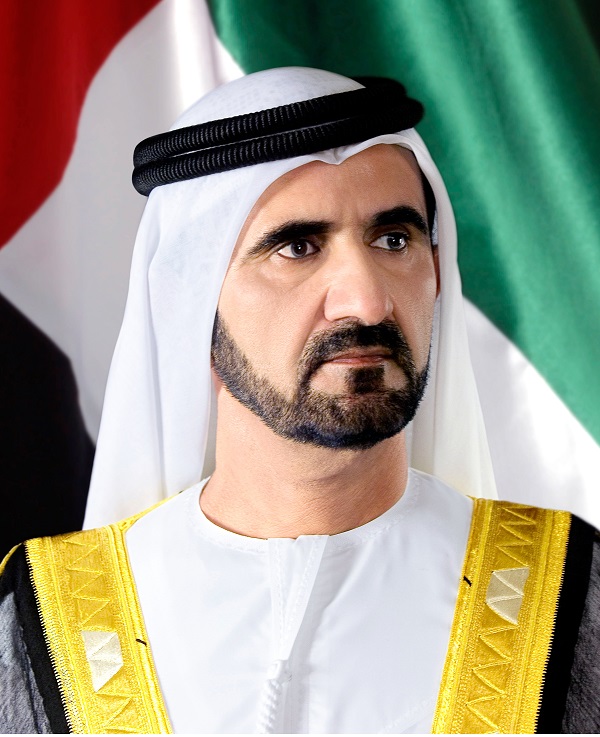What is the difference between a sheikh and an ordinary Arab?
Sheikh is a title that is given in the upper classes of Arab society. It denotes not only a high social status, but also a significant inheritance that this individual possesses. What distinguishes a sheikh from an ordinary Arab? This question is of interest to many people who want to understand the peculiarities of this wonderful culture.
There are various factors that make sheikhs special in the Arab world. First, they are the heads of their clans or tribes and have the authority to make important decisions on various issues, from politics to economics. Sheikhs also play a key role in preserving and passing on the traditions and values of their people. Secondly, sheikhs often have significant material wealth. They own a large amount of land, shares in companies and other assets. Their wealth allows them to maintain a high standard of living and provide for their heirs. Moreover, the sheikhs also actively invest in various projects, contributing to the economic growth of their regions and the country as a whole. This makes them not only iconic figures of Arab society, but also significant players on the world stage.
The history and meanings of the title “sheikh” in Arab culture

The title “sheikh” has a rich history in Arab culture and has a special meaning. In Arabic, the term “sheikh” can mean an elder, a leader, or a respected elder. Sheikhs have an important position in society and are considered to have knowledge, wisdom and experience.
Historically, the title “sheikh” was used to refer to senior tribal leaders who provided protection and guidance to their communities. They were authorities who were approached with questions and problems. These elders also played an important role in religious traditions and rituals.
Over time, the meaning of the title “sheikh” has expanded and has been used to refer to scientists, spiritual leaders and teachers. The sheikhs have knowledge in various fields such as Islamic law, theology, poetry and music. They are authoritative sources of information on Islamic teachings and traditions.
In addition, sheikhs can also be spiritual mentors and provide guidance in religious matters. They provide advice and assistance to believers in various situations. Many people dream of receiving blessings and guidance from the sheikh, believing that this can bring them spiritual well-being and success.
Sheikhs are also known for their longevity, energy and respected position in society. They are symbols of wisdom and authority, and their opinions are often taken into account when making decisions in the community.
Features of the social status of sheikhs in modern Arab society

Sheikh is a title usually given to high-ranking Arab leaders or influential family members. What is the difference between a sheikh and an ordinary Arab? One of the main differences is the social status that sheikhs have in modern Arab society.
Sheikhs have high prestige and respect in society. Their words and decisions are usually weighty and have a significant impact on making important decisions in the socio-political sphere. They play a key role in the socio-cultural life of Arabs, they are often patrons and sponsors of various events, festivals and charity events.
Sheikhs also have significant material resources that enable them to maintain their high position in society. They own large plots of land, real estate and businesses, which allows them to provide for their needs and maintain their influence.
In addition, sheikhs have a special legal status. In some countries of the Arab world, sheikhs enjoy immunity and special privileges, which gives them more freedom and the opportunity to influence legislative policy. They also have the opportunity to hold high government positions and participate in important decision-making.
In general, sheikhs are exceptional figures in Arab society who have a high social status, powerful influence and significant resources
Hierarchy and role of sheikhs in Arab tribes and clans

The concept of a sheikh in Arab culture has deep historical roots and acquires special significance within the framework of the tribal organization of society. A sheikh is an elder of a tribe or clan who is an authority and influential figure in Arab society. He not only has a high social status, but also performs a number of functions that are key to the existence and preservation of a tribe or clan in traditional conditions.
Initially, the sheikhs elected the wisest and most experienced members of the tribe, who were able to make the right decisions and resolve conflicts for the benefit of the entire collective. The creation of a hierarchical structure with a sheikh at the head helps to ensure more effective management and coordination of actions of all members of the tribe.
The Sheikh has the authority to make decisions on issues related to conflicts, family affairs, pasture management and other resources, as well as other important issues related to the life of the tribe. He is responsible for preserving and passing on the traditions, culture and customs of his people to the younger generation.
Also, one of the important functions of the sheikh is the role of mediator in relations with other tribes and clans. He acts as the head of the delegation during meetings and negotiations, helping to resolve disputes and introduce new members to the tribal community.
Sheikhs play a key role in maintaining and strengthening the traditional values and customs of Arab culture
Education and requirements for obtaining the title of Sheikh

In order to become a sheikh in Arab society, it is necessary to go through a certain path of education and fulfill a number of requirements. Sheikhs have a high level of knowledge in the religious sphere and are authorities for the Muslim community.
To begin with, future sheikhs must study at a madrasah, a special religious educational institution where they study the basics of Islam, the Koran, hadith and other sacred texts. Studying at a madrasah takes many years and requires students to be fully devoted and committed to the teachings of Islam.
After graduating from the madrasah, future sheikhs can undergo further specialized studies at a university or other educational institution, where they deepen their knowledge in various fields of religious science. It can be Islamic philosophy, theology, Islamic law, etc.
However, education is only one of the aspects that determine the status of a sheikh. An important requirement for obtaining the title of sheikh is reputation and authority in Arab society. Sheikhs must show exemplary and righteous behavior, follow the instructions of Islamic morality, be attentive to the needs of their community and always ready to help resolve religious issues.
To become a sheikh, it is also necessary to obtain the right to advise other Muslims on matters of religion and to receive approval from scholars and authorities of the Islamic world
Sheikhs and political influence in the Arab region

Sheikhs are highly ranked and influential members of the Arab public who have political and economic power in their regions. They differ from ordinary Arabs in their status, wealth and influence.
Sheikhs play a crucial role in the political life of the Arab region. Through their connections and resources, they can influence key decision-making, both nationally and internationally. Sheikhs often hold high positions in government and have a significant say in shaping the policies of their countries.
In addition to political influence, sheikhs are also significant economic actors. They control most of the resources and businesses in their regions. Thanks to their wealth and influence, they can create jobs, invest in various industries and contribute to the economic development of their countries.
However, despite their importance in the political and economic spheres, sheikhs can also cause some controversy. Some people believe that the power and wealth of the sheikhs are unfairly distributed and lead to social inequality. Critics also point out that sheikhs can use their influence for personal gain and violate human rights.
In general, sheikhs differ from ordinary Arabs in their political status and economic strength.



